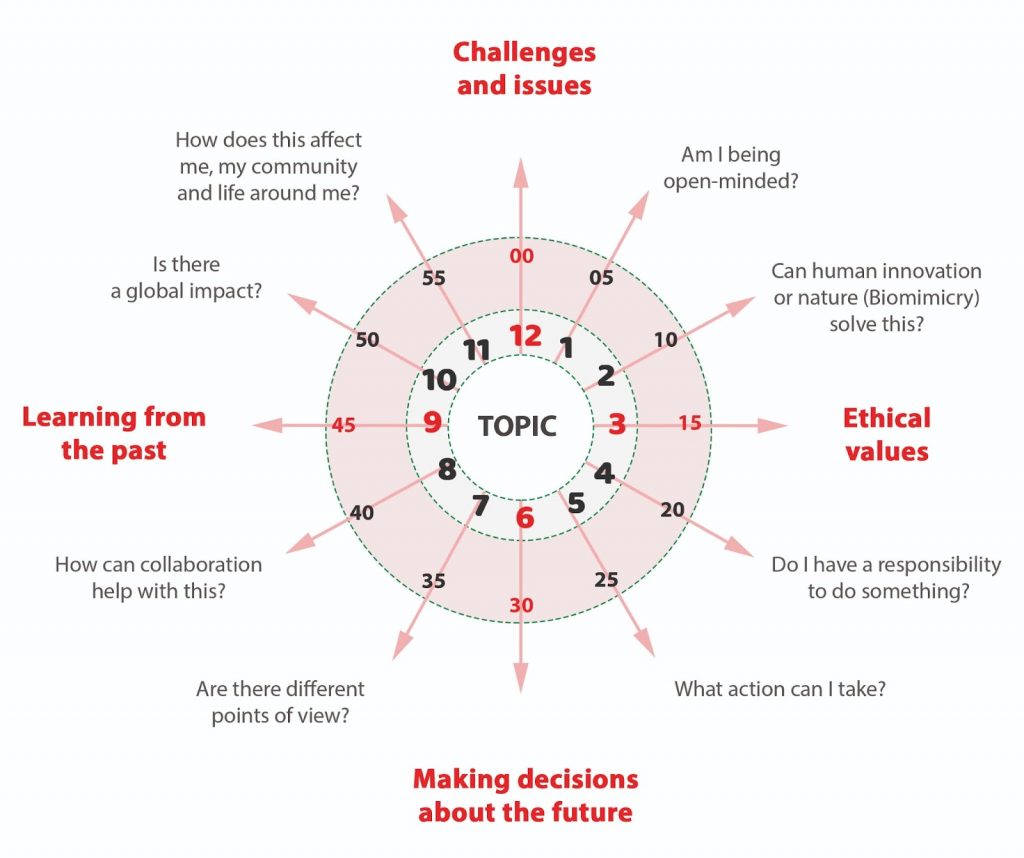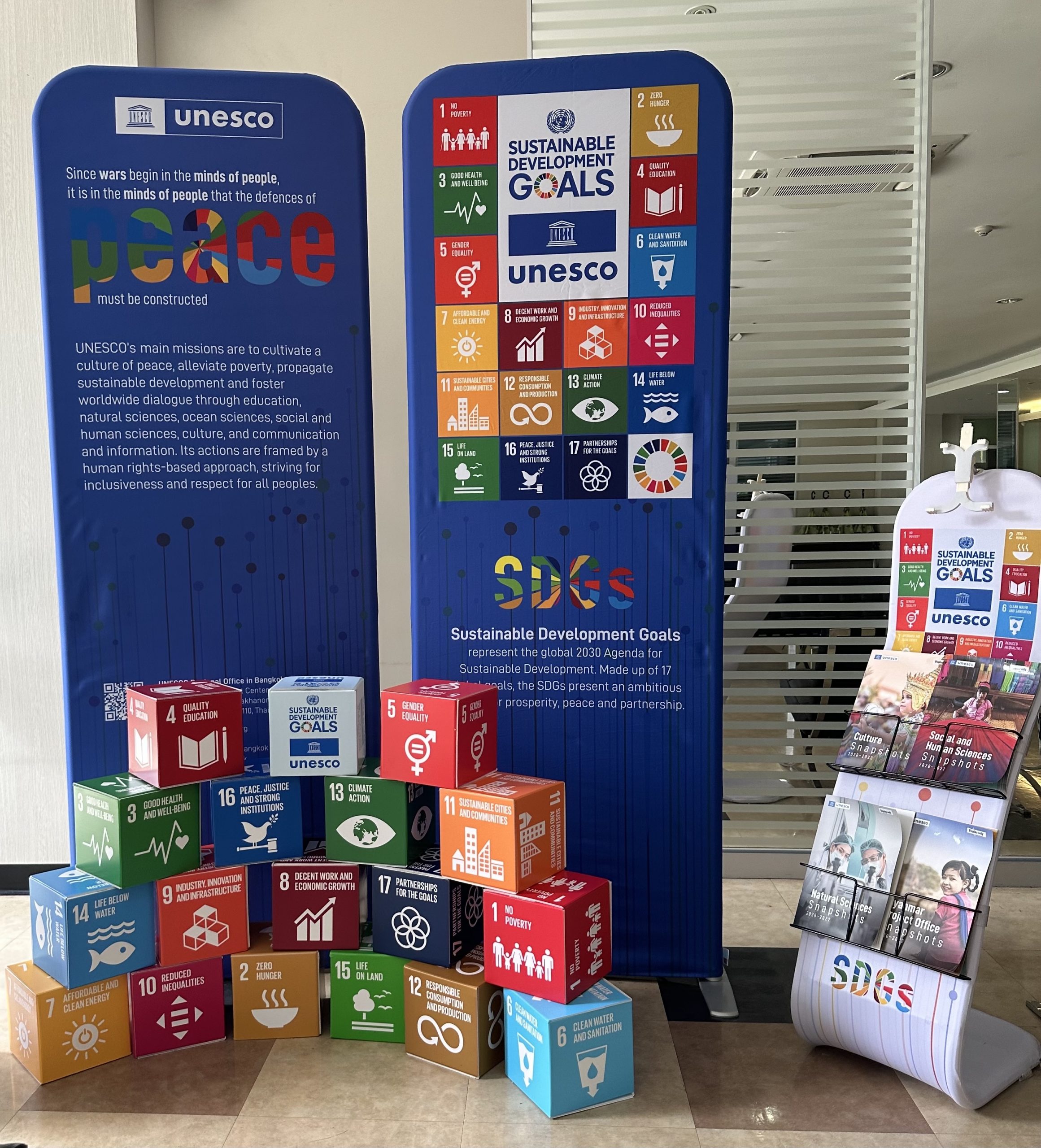June 28, 2024
UNESCO’s revised ‘Recommendation on Education for Peace, Human Rights and Sustainable Development in Asia-Pacific’ acknowledges that “…education in all its forms and dimensions, in and out of schools, shapes how we see the world and treat others, and it can, and should, be a pathway to constructing lasting peace”. With much of our world in crisis, for education to address a pathway to peace is vital. We were honored to be invited to present our upcoming book 21 Visual Thinking Tools for the Classroom: Developing Real World Problem Solvers in Grades 5-10 at the recent UNESCO conference in Bangkok, the first regional launch of the updated recommendation. The opportunity to showcase our new book pre-release to such a targeted audience was exciting, as so many of the Thinking Tools featured align to the UN Sustainability targets and support Peace Education.
In addition to educators, a diverse range of stakeholders were present, including government representatives. We were inspired by the indigenous and youth perspectives; the keynote speaker Nanaia Mahuta is the first Māori woman to have served as Minister of Foreign Affairs to New Zealand. Nanaia highlighted the importance of considering what is doable and what are the practical steps within the home, the community and the classroom when reconceptualizing a road map for peace. The youth session,”Co-creating a Roadmap to the Future: Youth perspectives on the Recommendation” included representatives from the Philippines, Republic of Korea and Nepal. Their comments included broadening the recommendation to all aspects of sustainability, not just environmental — for example, for social emotional growth and enhancing the diversification of organizations with youth to give them a voice. The panel also commented on the potential of implementation via informal groups.

With a focus on sustainability and peace education, we presented two tools, firstly The Clock Toolⓒ, an innovative way of generating inquiry about the climate emergency and sustainability issues. Our second tool was The Thinking Generatorⓒ, both an analytical and social emotional learning tool which can be used to reflect on bias, assumption and open-mindedness. Delegates we spoke to were concerned about issues such as the development of inquiry-generation and critical thinking, and they recognised that the thinking tools could address these. Interestingly the graphic visual nature of the tools drew them in to look more closely at the variety and versatility by the Thinking Tools.
The road map and recommendation have just started being rolled out. What kind of road map of peace education is your school developing? Are you listening to young people’s voices within your families, schools and communities? What opportunities can you give them to be more involved in decision-making? “All things global are very local” and “If it stays invisible, it will never be valued” were powerful comments from Nanaia’s keynote that can inspire students’ discussions. What are the connections between the global and local you can encourage your students to make? What are the invisible things in your communities that you can help make visible and valued?
Our book, 21 Visual Thinking Tools for the Classroom Developing Real-World Problem Solvers in Grades 5-10, comes out on July 9th!
References
UNESCO. (2023, February 23). Revision of the 1974 recommendation concerning education for international understanding, co-operation and peace and education relating to human rights and fundamental freedoms. UNESCO. https://www.unesco.org/en/education/1974recommendation


